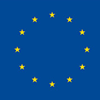Informations relatives aux changements des taux d'intérêt de référence sur les marchés
Le message suivant est communiqué à titre d’information uniquement et concerne des changements intervenus dans le secteur des services financiers. Aucune action n’est requise de la part des investisseurs.
Chez Columbia Threadneedle, nous mettons tout en oeuvre pour que l’impact sur nos clients soit le plus limité possible. Nous vous contacterons en temps utile si vos investissements sont impactés.
Changes are being made to a series of international benchmark interest rates, referred to as IBORS (International Benchmark Interest Rates) and including the London Interbank Offered Rate (LIBOR). LIBOR will be retired by the end of 2021, in favour of more robust, “risk free rates” or RFRs. Most other IBORs will also be replaced or reformed.
This change will have impacts for asset management firms such as Columbia Threadneedle Investments and some of the investments we manage on behalf of our clients. Our overall exposure to IBOR/LIBOR is very small, and we do not expect material changes to the nature or risk profile of our investment funds or portfolios, or to the way they are managed
The transition to risk free rates is a priority project for us, with executive sponsorship from our EMEA CEO Nick Ring. We have dedicated resources to manage the transition thoroughly and carefully to ensure a smooth experience for our clients and our busines
LIBOR, the London Interbank Offered Rate, is the interest rate that some of the world’s biggest banks estimate they would charge their peers for borrowing money from them. This rate is set in different currencies, and for different time periods. IBORs are other Interbank Offered Rates used around the world.
Both LIBOR and IBORs are widely used as a short-term interest rate benchmark for financial products, including funds and investment securities (e.g. in bonds).
Fewer banks now wish to lend on an unsecured basis (i.e. not protected by collateral), and this reduction in activity has led to LIBOR becoming less representative of that market, making it both less reliable and volatile.
In 2017, the UK’s Financial Conduct Authority announced that as of the end of December 2021 banks won’t be compelled to support the LIBOR benchmark. All banks and market participants therefore need to work towards removing dependencies on LIBOR by this date.
We are working alongside our regulators to bring about the smooth transition away from LIBOR (and any other IBORs) to more robust risk-free rates (RFRs).
RFRs are overnight deposit rates, based on the observation of real transactions.
The RFR chosen will differ by currency. In the UK, for example, the new benchmark will be SONIA, the Sterling Overnight Index Average. The below table shows some of the replacement RFRs now in place. Others may be created in due course, and we are monitoring this closely and following recommendations from global working groups where appropriate.
Table 1: LIBOR alternative RFR for three different currencies
Currency | RFR | Working Group | Description |
|---|---|---|---|
 US Dollar | Secured Overnight Financing Rate (SOFR) | Alternative Reference Rates Committee | A broad measure of the cost of borrowing cash overnight collateralised by U.S. Treasury securities. |
 Sterling | Sterling Overnight Index Average (SONIA) | Working Group on Sterling Risk-Free Reference Rates | Based on actual transactions and reflects the average of the interest rates that banks pay to borrow sterling overnight from other financial institutions. |
 Euro | Euro short-term rate (€STR) | Working Group on Risk-Free Reference Rates for the Euro Area | Reflects the wholesale euro unsecured overnight borrowing costs of banks located in the euro area. |
 Yen | Tokyo Overnight Average Rate (TONAR) | Study Group on Risk-Free Reference Rates | An uncollateralised overnight call rate. |
 Yen | Swiss Average Rate Overnight (SARON) | The National Working Group on CHF Reference Rates | A rolling, volume-weighted average based on transactions concluded and reference prices posted on a given trading day. |
For information purposes only.
LIBOR ceases at the end of 2021 but we expect to complete the work earlier.
You do not need to take any action regarding this change.
If the fund(s) that you are invested in is affected by the change, we anticipate writing to you in early 2021 with our transition plans, and any potential implications and impacts.
The number of shares you hold will not be affected by the change. The fund(s) you invest in will continue to be managed in the same way, and we don’t expect there to be any impact on a fund’s risk profile.
If you have any questions about what these changes mean or what you should do about them, please contact your financial adviser.
